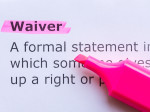Data Security Due Diligence and All the Other Lawyers
Occasionally lawyers still call in asking if it’s ethically permissible to place data in the cloud and often wanting to talk about the associated risks. I get it. For those who haven’t intentionally moved to the cloud already, trying to understand the risks and learning how to responsibly manage them can be a bit intimidating. Thankfully, a number of ethics opinions have been issued on this topic over the years so the answer to their questions is usually a rather straight forward one. Basically, it’s yes as long as you do your due diligence on the vendor and couple that with taking appropriate steps to see that your data is properly secured in transit as well as when at rest.









